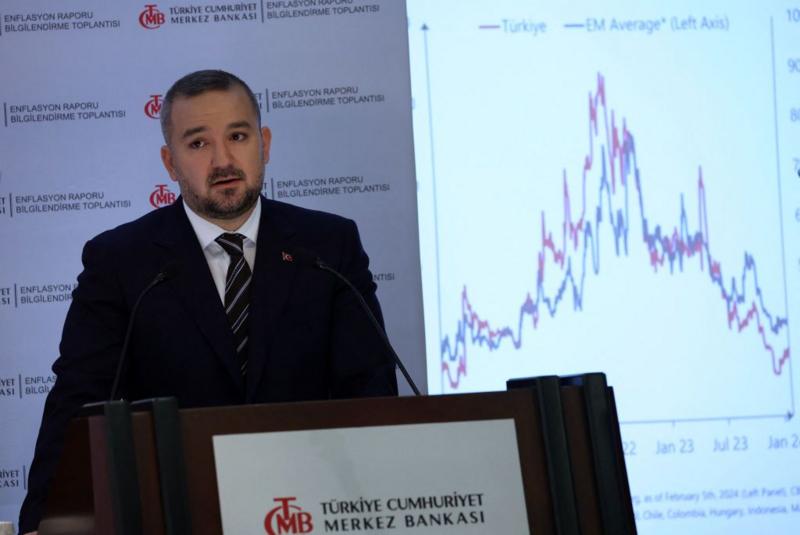In the 13th issue of the Monetary Policy Assessment Note, which is published regularly by the Economic Policy Research Foundation of Turkey (TEPAV) and includes comprehensive analyses on Turkey’s disinflation process and the future of monetary policy, it is stated that frequent changes in inflation targets damage the reputation of monetary policy and make it difficult to improve expectations.
The thirteenth Monetary Policy Assessment Note prepared by TEPAV Macroeconomics Working Group was published. The note contains important analyses and assessments on Turkey’s monetary policy and economic outlook.
Highlights of the September 2024 Monetary Policy Assessment Note are as follows…
Turkey’s inflation rate remains high
The note stated that Turkey’s monthly consumer inflation rate was 2.47% in August 2024, which is quite high compared to G20 countries. However, although Turkey’s risk premium has been hovering around 270 basis points in recent weeks, it should come down to lower levels, the note said.
Inflation expected to trend down
Inflation is expected to trend downwards in the coming months, unless the current program aimed at ensuring macroeconomic stability is abandoned, the note said, noting that there are some risks in this process.
Loan rates remain high
In the assessment note, it was stated that loan rates remained above the level required to fight inflation due to macroprudential restrictions imposed on the credit market, and it was emphasized that these regulations should be reviewed, and although measures were taken to restrict the supply of dollar-denominated loans, it was also stated that this process should be carefully monitored in terms of financial stability.
High budget deficit is still a risk factor
In the note, it was stated that the budget deficit, which remained high in 2024, should be brought under control with additional measures to achieve the Medium Term Program (MTP) targets for 2025. It was also warned that the measures taken in this regard may be insufficient.
Frequent changes in inflation targets undermine the credibility of monetary policy
The note noted that frequent changes in inflation targets undermine the credibility of monetary policy and make it difficult to improve expectations. The inconsistency between the inflation forecasts in the Central Bank’s Inflation Report and the Medium Term Program was cited as an example. Accordingly, while the Central Bank’s year-end forecasts (targets) for 2024 and 2025 were 38 and 14 percent in the Inflation Report published on August 8, they were announced as 41.5 and 17.5 percent in the Medium Term Program published about a month later, on September 5.
Structural reforms are needed
The note underlined that focusing solely on monetary and fiscal policies would not be sufficient in the fight against inflation and that this should be supported by structural reforms, including tax reform, measures to reduce the budget deficit and steps to strengthen the independence of institutions. “From now on, monetary policy should focus on the 17.5 percent annual inflation level targeted in the MTP for end-2025 (or 14 percent targeted in the Central Bank’s Inflation Report),” the report said, underlining once again that “trying to bring inflation closer to this level only through monetary and fiscal policy” would not be a desirable option in terms of social cost. “The program must be strengthened with structural measures based on a new development strategy,” the report emphasized.
Access to Turkish lira is becoming more difficult
The negative effects of quantity bans, which make it more difficult to access Turkish lira-denominated financing, should be carefully monitored, the note said, adding that Turkish lira-denominated trade credit restrictions should be lifted gradually.
